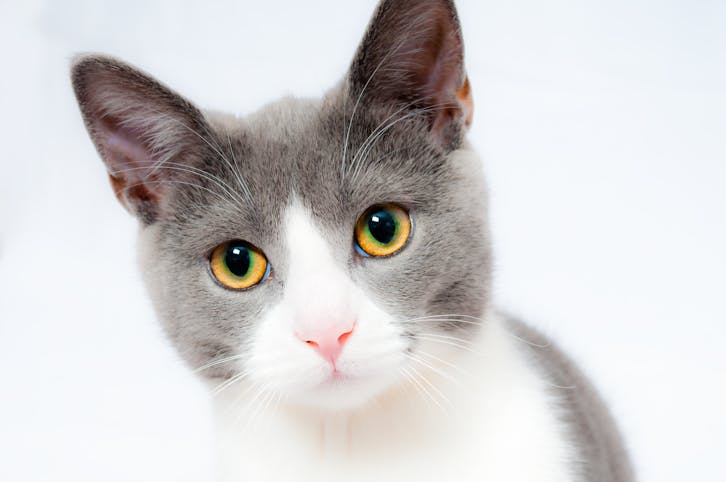Can you imagine sitting down with a cup of tea and a packet of McVitie’s Chocolate Digestives, only to find your curious cat eyeing your snack? It’s tempting to share a treat with your furry friend, but is it safe for cats to eat chocolate biscuits? Let’s break down why this seemingly innocent snack could pose serious dangers to your beloved pet.
🍫 Why Chocolate Is Dangerous for Cats
Chocolate contains two substances that are toxic to cats: theobromine and caffeine. These compounds are part of a group of chemicals known as methylxanthines, which cats cannot metabolize effectively. Even a small amount of chocolate can lead to poisoning, and the consequences can be severe.
McVitie’s Chocolate Digestives, in particular, contain milk chocolate, which is less toxic than dark chocolate but still dangerous. The combination of chocolate and sugar in these biscuits can spell trouble for your cat’s health.
⚠️ Symptoms of Chocolate Poisoning in Cats
If your cat has managed to sneak a bite of a chocolate digestive, you’ll need to monitor them closely for signs of poisoning. Symptoms can appear within hours of ingestion and may worsen over time.
- Vomiting
- Diarrhea
- Increased thirst
- Rapid breathing
- Restlessness or hyperactivity
- Elevated heart rate
- Muscle tremors or seizures
These symptoms can escalate quickly, especially in smaller cats or those with pre-existing health conditions. If you notice any of these signs, contact your vet immediately.
🛑 Other Dangers of McVitie’s Chocolate Digestives
Beyond the chocolate content, McVitie’s Chocolate Digestives contain other ingredients that aren’t suitable for cats. Here are additional reasons to keep these biscuits away from your feline friend:
- Sugar: Excessive sugar can lead to weight gain, diabetes, and dental issues in cats.
- Wheat: Digestives contain wheat flour, which some cats may struggle to digest, potentially causing stomach upset.
- Fats: The high fat content can contribute to obesity and pancreatitis over time.
These ingredients may not be immediately toxic, but they can harm your cat’s long-term health if consumed regularly.
🐱 Why Cats Are Attracted to Human Food
It might seem odd that your cat is interested in chocolate biscuits when they’re obligate carnivores. Cats are naturally curious creatures, and they’re drawn to the smell and texture of human foods. However, their bodies aren’t designed to process many of the ingredients found in our snacks.
If your cat keeps trying to steal your food, it could be a sign that they’re bored, hungry, or simply seeking attention. Make sure they have a balanced diet and plenty of stimulation to keep their paws out of your plate.
🍪 Safe Alternatives to Chocolate Biscuits
Sharing snacks with your cat can be a bonding experience, but it’s essential to choose safe options. Here are some cat-friendly treats to consider:
- Cooked, unseasoned chicken or fish
- Cat-specific treats available at pet stores
- Small pieces of plain, cooked pumpkin
- Freeze-dried meat snacks
Always check with your vet before introducing new foods to your cat’s diet, and avoid feeding them anything with added sugar, salt, or artificial ingredients.
🩺 What to Do If Your Cat Eats Chocolate Digestives
If you catch your cat nibbling on a McVitie’s Chocolate Digestive, don’t panic. Follow these steps to ensure their safety:
- Remove the biscuit: Take away any remaining chocolate digestives to prevent further ingestion.
- Assess the amount eaten: Try to estimate how much chocolate your cat consumed and note the type of chocolate (e.g., milk or dark).
- Call your vet: Provide details about your cat’s weight, age, and health history, along with the amount of chocolate ingested.
- Follow your vet’s advice: They may recommend monitoring your cat at home or bringing them in for treatment.
Time is critical when dealing with chocolate poisoning. The sooner you act, the better the outcome for your cat.
FAQs
Q: Can a small amount of chocolate hurt my cat?
A: Yes, even a small amount of chocolate can be harmful. Cats are highly sensitive to theobromine and caffeine, which can cause toxicity.
Q: What should I do if my cat shows symptoms of chocolate poisoning?
A: Contact your vet immediately. Symptoms like vomiting, diarrhea, and rapid breathing require prompt attention.
Q: Are other types of biscuits safe for cats?
A: Most human biscuits contain ingredients like sugar, wheat, and fats that aren’t ideal for cats. Stick to vet-approved treats instead.
Q: How can I stop my cat from stealing my food?
A: Keep human food out of reach, and provide your cat with a balanced diet and plenty of stimulation to reduce their interest in your snacks.
References
Book a $49 online vet consultation at https://www.dialavet.com for fast, expert advice.






















